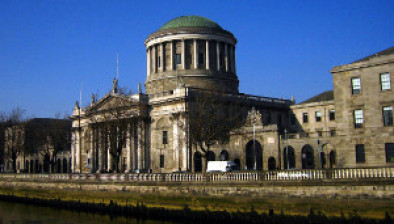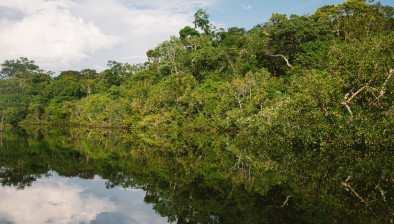A global surge in climate litigation: key cases and insights

As global temperatures rise and the effects of climate change become more pronounced, countries around the world are witnessing a surge in climate-related litigation. Irish Legal News delves into this growing trend, exploring key cases and shifts in global attitudes.
The journey of international climate diplomacy began in the 1970s, gaining prominence by the 1990s. In 1992, the United Nations Framework Convention on Climate Change (UNFCCC) was introduced, providing a foundational platform for nations to discuss curbing global temperature rises. This led to the Kyoto Protocol in 1997, which imposed legally binding emissions reduction targets on developed countries. The Paris Agreement, adopted in 2015 by 196 countries, further aimed to restrain the temperature rise to below 2 degrees Celsius, offering flexibility for nations to set their unique climate targets.
Despite the global consensus, some major carbon emitters have wavered in their commitments, notably the US, which oscillated in its stance, and China, which pledged to achieve carbon neutrality by 2060. With the escalating climate crisis, climate litigation surged. As highlighted by UNEP’s Inger Andersen in 2021, climate court cases doubled since 2017 as public sentiments shifted towards holding entities accountable for environmental actions.
Ireland and the UK
In Ireland, a judicial review claiming that the country is set to fall short of its legally-binding climate targets was launched in early September. Friends of the Irish Environment (FIE) claims that the government has failed to show with a sufficient level of specificity that its climate action plan for 2023 will reduce greenhouse gas emissions in line with legislation.
The UK government faces a legal challenge from the Good Law Project, Friends of the Earth and ClientEarth which is going to the High Court for a rolled up hearing from February 20-22 next year. The Good Law Project’s part of the case focuses on the government’s refusal to publish the risk tables associated with each of its net zero policies. It believes this is unlawful and wants to force ministers to disclose them to the public and Parliament.
In Scotland, GLP is taking action against the devolved government along with the Environmental Rights Centre for Scotland, unless ministers act “urgently” to uphold the government’s commitments over the climate crisis. The Scottish government has pledged to reduce carbon emissions to net zero by 2045, declaring that Scotland’s contribution to global heating will “end, definitively, within one generation”. However, more than two years since the government announced its infrastructure investment plan, it has yet to publish an assessment of the plan’s climate impact, despite its statutory duties to do so.
ECtHR: Duarte Agostinho et al. v Portugal and 32 Others
Last month, six young people from Portugal took 32 countries to trial over their failure to avert the climate disaster at a landmark hearing before the European Court of Human Rights. The case targets all EU member states and also includes the UK, Switzerland, Norway and Turkey. It seeks a binding decision to prompt these governments to combat climate change more decisively. The case suggests that government inaction on climate change breaches human rights.
The six applicants were Cláudia Agostinho, 24, Martim Agostinho, 20, Mariana Agostinho, 11, Sofia Oliveira, 18, André Oliveira, 15, and Catarina Mota, 23. If they are successful, the respondent countries may be required by law to reduce their greenhouse gas emissions. The court considered the applicants’ argument that their rights under the following articles of the European Convention on Human Rights are being violated:
- Their right to life (Article 2)
- The right to be free from torture, inhuman or degrading treatment (Article 3)
- Their right to privacy and family life (Article 8)
- Their right to be free from discrimination on grounds of age (Article 14) in conjunction with Article 2 and/or Article 8.
A decision could be made within a few months and as rulings of the ECtHR are binding on the states concerned, it could influence other cases before domestic courts in Europe, and strengthen future climate cases brought at a national level.
America
The second biggest polluter in the world, the US, is also the centre of climate litigation. As of the end of last year, 1,522 cases had been filed in America – compared with 658 cases in all other jurisdictions in the world combined.
In August a judge in Montana ruled in favour of a group of young people in Held v Montana, a case experts say will alter the climate litigation landscape. It is the first-ever constitutional climate case in US history to go to trial and at least four others are to follow, including one brought by young people in Hawaii.
In a 103-page ruling, the judge found in Held that Montana had fallen foul of state legislation that requires it to consider the climate impact of energy projects. The state, however, is to appeal to the country’s Supreme Court. Rikki Held, 22, the lead plaintiff, said: “I knew that we would win because we had such a strong case. This is about protecting our basic human rights.”
Julia Olson, the lead attorney representing the young plaintiffs, said the importance of the court’s decision is “monumental”. Ms Olson, who is executive director of Our Children’s Trust, a non-profit environmental group, said similar rulings are likely to follow.
During the trial, many of the plaintiffs testified about their climate-related injuries. Among them were two brothers who suffered from respiratory diseases. They told the court they had to leave their hometown because wildfire smoke had worsened their asthma. The ruling, coming as it did during a summer of record heat and deadly wildfires, could inform a growing number of national and international cases attempting to hold governments and businesses accountable for human rights harms caused by climate change.
The federal case of Juliana v United States, first filed in 2015, is also on the path to trial.
India
India is the third biggest polluter in the world after China and the US but so far its courts have been reluctant to intervene in the climate crisis. The country has, however, found its own Greta Thunberg in 15–year-old Ridhima Pandey. The girl from the northern state of Uttarakhand was the plaintiff in a case filed in March 2017 with the National Green Tribunal of India. Her petition claimed that India is bound by the Paris Agreement, domestic law and governmental policies to mitigate climate change. The tribunal dismissed the case on the basis the government was acting appropriately. Other cases in India have been similarly dismissed but Ridhima remains undeterred and will likely be a prominent figure in climate activism in the country.
Japan
Japan, which is the fourth biggest polluter in the world, has seen five legal cases on climate litigation, all brought by concerned residents over the construction and operation of coal-fired power plants. One, which came about after failed mediation in 2011 had as plaintiffs residents of the Pacific island nation of Southern Tuvalu as well as a polar bear. Two of the cases have failed, with the remaining ones pending before the courts.
Africa
In November 2020, four civil society organisations brought a case against the governments of the United Republic of Tanzania and Uganda in the East African Court of Justice, requesting an injunction to halt the construction of the East African Crude Oil Pipeline. In Center for Food and Adequate Living Rights et al. v Tanzania and Uganda, the plaintiffs allege that the governments have agreed to build the pipeline in the absence of proper environmental, social, human rights and climate impact assessments. The pending claim arises under Ugandan national law, and the East African Community Treaty and its protocols.
The paucity of climate cases in Africa may be the result of weak legislative frameworks, a slow judicial process or limited financial resources. It also notes that litigation may have been “secondary consideration compared to broader and more commonplace environmental disputes placing more emphasis on land, property rights or natural resources”. However, that is likely to change as the global climate litigation movement spreads.
Latin America
In Latin America plaintiffs include NGOs, indigenous peoples, children, union workers and political parties. The primary defendants have been governments. Columbia Law School has published an in-depth report on just transition litigation in the region.
In the case of Company Workers Union of Marítima & Commercial Somarco Limited vs Ministry of Energy, workers challenged the state’s energy transition process, claiming they were not consulted on labour reinsertion policies after their workplace was closed due to decarbonisation plans. The Supreme Court of Chile ruled in their favour, ordering the state to include them in the transition process.
In the Huayún Mapu Indigenous Community case, indigenous groups contested contracts given to foreign companies for lithium exploitation. The Supreme Court of Chile dissolved these contracts due to the state’s failure to consult with indigenous communities. While neither case opposed the energy transition itself, both focused on the manner of its implementation.
Ecocide
An increasing number of nations are also also considering legislation to classify ‘ecocide’ as a crime.
Ecocide refers to mass damage and destruction of ecosystems – severe harm to nature which is widespread or long-term. The Stop Ecocide Foundation’s definition is intended for adoption by the International Criminal Court via an amendment to the Rome Statute and is also under consideration by individual countries.
Mexico has proposed legislation seeking to penalise “any unlawful or wanton act committed with the knowledge that there is a substantial likelihood of severe and either widespread or long-term damage to the environment”. If ratified, individuals convicted of ecocide might face imprisonment for up to 15 years and potential daily fines up to 1,500 pesos (£70).
A handful of countries globally, including Vietnam, Ukraine, and Russia, have criminalised ecocide. In Ukraine, the public prosecutor is scrutinising a possible ecocide case against Russia, pertaining to the Nova Kakhovka dam breach.
In 2021, France became the first EU nation to enshrine ecocide in its legal code, albeit with language less stringent than many activists anticipated. A precedent case centred on carcinogenic substances is ongoing.
Similar legislation has been introduced the Netherlands and Belgium is on the verge of finalising its ecocide law, while the Catalan parliament is advocating for the incorporation of ecocide into Spain’s broader penal system. In Brazil, where Amazon rainforest deforestation has often been labelled criminal, the PSOL political faction presented a bill concerning ecocide to congress in June. In Scotland, Labour MSP Monica Lennon has called for an ecocide bill and intends to start a public discussion on the it in the autumn.










